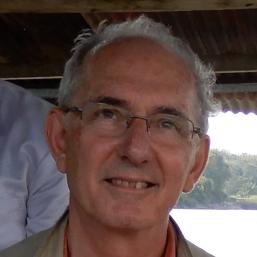
Marcus is a social anthropologist trained at the University of Oxford (PhD) and Zoologist (MA) who spent several years living in the Amazon with the Sanema (Northern Yanomami) people of South Venezuela studying their social ecology. Marcus was one of the first 'greens' and environmentalists and an activist for an NGO that promotes the human rights of indigenous peoples and other long-term residents of forests ('forest peoples') since 1977.
In 1990 Marcus established the Forest Peoples Programme (FPP) a famous human rights organization today. AT FPP, Marcus worked directly with forest peoples in various countries. He has been actively involved in helping indigenous peoples' voices be heard in UN and World Bank forums. Much of his work has focused on setting standards, legal reforms and providing technical support to land claims. After leaving the position of Director of FPP in 2013, Marcus continued to serve as Senior Policy Advisor. Marcus has published very widely in books, scientific journals, popular magazines and in 'grey' literature.
Marcus has been involved with FSC from before the Toronto charter meeting in 1993, which he also attended. Since then, he has participated in several FSC standard-setting initiatives. He has also participated in many multi-stakeholder processes, for example, as an 'expert' in the amendment of ILO Convention 107 and the drafting of ILO Convention 169, assisting UN human rights entities as an NGO with consultant status, and as a member of the High Conservation Values Network and in the Dialogue on Forests. Marcus is currently the social representative of NGOs in the Governing Council of the RSPO.
Some focus áreas for Marcus during his role on the FSC International Board of Directors includes:
- Strengthening FSC's responsiveness to the voices of forest peoples and better support their rights.
- Supporting the work of the CPPI and the FSC Indigenous Foundation and to work with the social chamber and wider membership to ensure that FSC standards and quality assurance procedures fully respect human rights.
- Strengthening FSC’s capacity to seek social redress and making the complaints system more accessible especially for forest peoples.